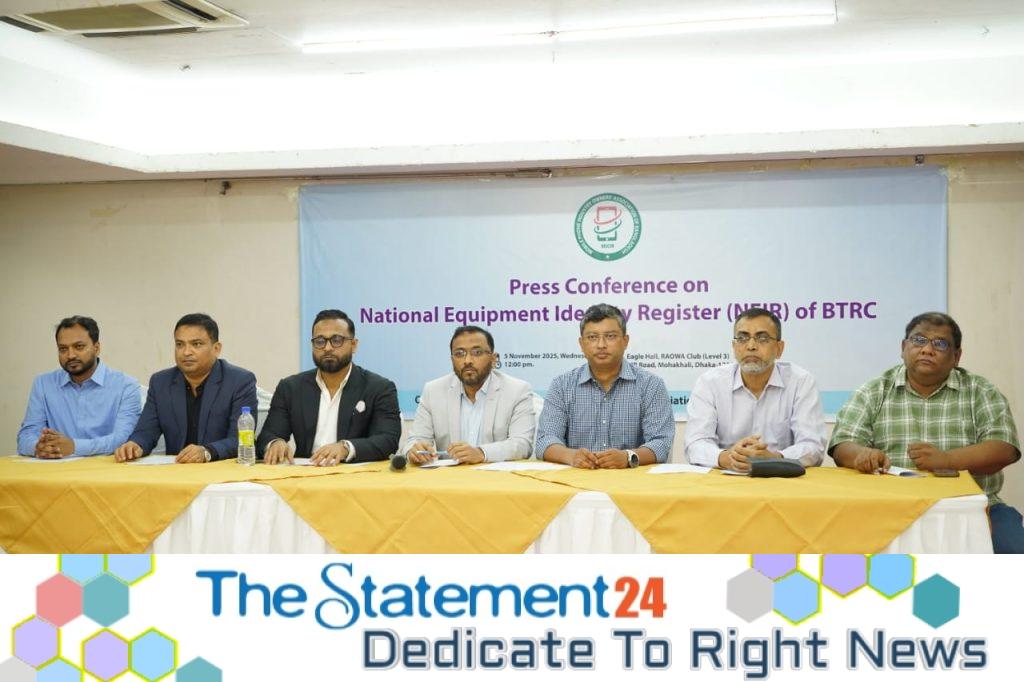
The journey of mobile phone manufacturing in Bangladesh began alongside mobile handset import in 2017. At present, around seventeen domestic and foreign companies are producing mobile phones in the country. These companies have invested over Tk 2500 crore and created employment for more than one lakh people.
Locally produced mobile phones are now not only meeting national demand but have also opened possibilities of export, creating a new scope for earning foreign currency. Alongside handset production, associated industries for packaging, printing, batteries, chargers, headphones and data cables have developed with investments exceeding Tk 1500 crore, employing an additional fifty to sixty thousand people.
There are nearly twenty thousand authorized mobile phone dealers across the country, employing around eighty thousand workers. In total, approximately one lakh sixty thousand people are directly involved in production and distribution. Considering an average family size, at least eight lakh people are dependent on the legal handset industry.
Despite this progress, the legal industry has long faced challenges due to the widespread use of illegal or gray market handsets. Currently, illegal phones occupy nearly sixty percent of the total market. This has placed legitimate investments at risk, limited foreign direct investment growth, and caused the government an annual revenue loss of about Tk 2000 crore. Moreover, illegal handsets have contributed to market instability and rising security concerns.
To address this challenge, the Bangladesh Telecommunication Regulatory Commission has announced the launch of the National Equipment Identity Register (NEIR), effective from 16 December 2025. After NEIR implementation, illegally imported or unregistered handsets will not function in Bangladeshi networks. This step is expected to restore discipline in the handset market and ensure government revenue protection.
NEIR: A Measure of Protection
Certain informal business groups have been spreading confusion regarding NEIR. These groups have been controlling the circulation of counterfeit, refurbished and stolen handsets. Such devices enter the market through tax evasion, resulting in lower prices but compromised product quality and no consumer protection. BTRC has been working to ensure that NEIR is implemented without causing customer inconvenience.
VAT and Tax Structure
Tax benefits provided to local handset manufacturers reflect global practice to promote local industry development, job creation and reduction of import dependency. However, the government may also consider narrowing the tax difference between imported legal handsets and locally manufactured handsets to maintain sectoral balance.
Price and Quality
Locally manufactured handsets are more affordable despite rising component and dollar costs in recent years. Manufacturers have controlled costs through operational efficiency. In comparison, imported gray market phones appear cheaper only because of tax evasion and lack of quality control. These products do not provide warranty or support services and may pose cybersecurity risks.
Consumer Benefits and Security
Once NEIR is implemented, consumers will be able to verify whether a handset is legally sourced. Legal handsets will provide product warranty, after-sales services, software updates and secure network usage. NEIR will also support lost or stolen phone tracking, enhancing personal and national security.
Call for Responsible Business Practices
Legal business is both a regulatory obligation and a moral responsibility. Any licensed entrepreneur can legally import and sell mobile phones. The objective is not to stop business, but to stop illegal trade that harms the state and consumers.
The Mobile Industry Owners of Bangladesh (MIOB) emphasizes that this initiative marks a pivotal moment in establishing a fair and transparent handset market free from illegal practices.
#NEIR #MobileIndustryBD #DigitalBangladesh #ConsumerRights #BTRC #LegalMarket #StopGrayMarket #SecureConnectivity #MadeInBangladesh

